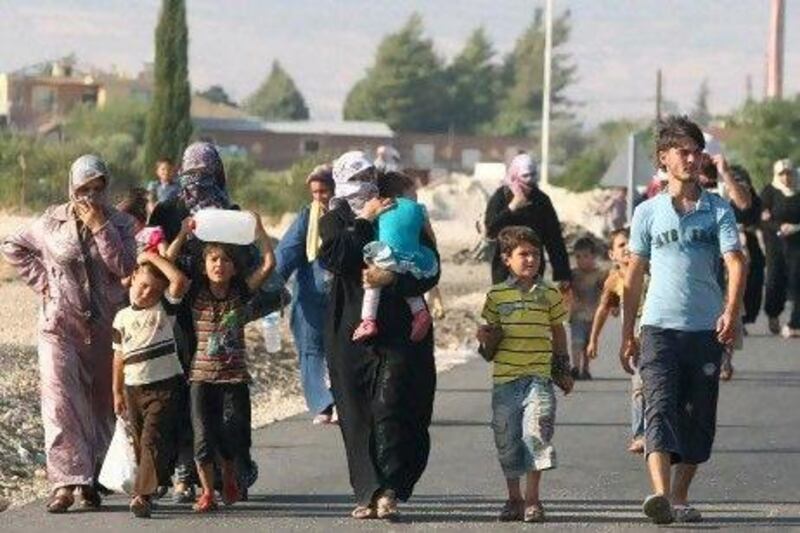ANTAKYA, Turkey // For opponents of president Bashar Al Assad, it has been a week of unprecedented success in the 17-month uprising.
Four members of the president's inner circle, including his brother-in-law, were killed in a bomb blast in the heart of Damascus. Then the rebel Free Syrian Army seized, at least temporarily, border posts along Syria's border with Iraq and Turkey.
Yet woven through the rising tide of optimism among regime foes here in Turkey are worries of what will happen after the collapse of the Assad dynasty.
While 18-year-old Mariam is keen to decamp from her family's illegally rented apartment in this frontier town and return to Syria to aid the rebel cause, her mother Huda and uncle Mohammad conjure a grim picture.
"It will be like Iraq," said Huda, 38, referring to the sectarian strife that erupted in that country after the US invasion and Saddam Hussein's removal from power in 2003. "There will be conflict between the Alawite and Sunni, Arabs and Kurds, and the different [political] parties."
A period of brutality is certain, predicted Mohammad, who said he defected from Syria's security forces a year ago. A regime maintained by violence will only give way to violence, he said. "What Assad did was he brought the Alawites and got them all involved in blood," he explained. "Their destiny relates to his destiny."
Without an organised Syrian military to protect Alawite communities, especially in the west, a post-Al Assad rise in sectarian violence is "likely", said Charles Lister, an analyst at IHS Jane's Terrorism & Insurgency Centre in London. Sunni militants will exact revenge on Alawites, a Shiite splinter group, sparking "a cycle of sectarian reprisal attacks", he said.
Thaer, a 38-year-old Alawite who has taken refuge in Turkey, said that he sees the same writing on the wall.
He has opposed Mr Al Assad for years. The sheikh of his hometown even branded him a traitor to the Alawite people and declared that he must be killed, he said.
Nevertheless, he thinks that he will not be able to return to Syria for at least 10 years because he carries the stigma of being Alawite.
The Sunni-dominated opposition "do not trust an Alawite guy, no matter his history", he said. His only option, he thinks, is to start a new life in a place far away, a place where his religious background does not matter.
It is not only sectarian violence that makes some Syrian wary.
With reports quoting anti-regime Islamist fighters calling for a religious state in Syria, Huda and other liberal and more secular regime opponents are wondering how religiously tolerant the post-Al Assad administration will be.
The first woman in her family both to be divorced and to not wear a headscarf, Huda said that she did not know the position of the main opposition coalition, the Syrian National Council (SNC), on women's rights, children's rights, divorce rights, honour crimes or on men having more than one wife.
Nevertheless, after a year spent in exile working with her two daughters as dishwashers and seamstresses, Huda is prepared to set aside her fears of violence and return to Syria and take part in rebuilding "civil society".
To her, the principal enemies of that vision are the Muslim Brotherhood and other Islamist groups who currently dominate the SNC - in part, she said, because the Muslim group is the only faction and organised party that offers financial support.
Still, she wants to try.
"I will stand up to the Muslim Brotherhood until they start [being repressive]. Then I will get out of Syria."






